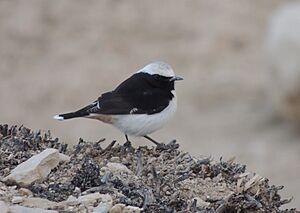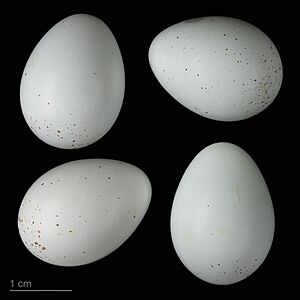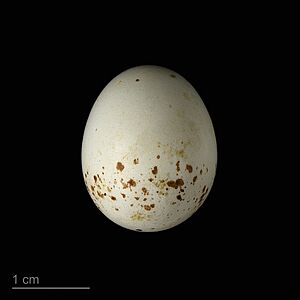Mourning wheatear facts for kids
The mourning wheatear (Oenanthe lugens) is a small bird. It is one of 14 types of wheatears. You can find it in northern Africa and the Middle East. This bird belongs to a group called "passerines." These are often called "perching birds." Scientists used to think they were part of the thrush family (Turdidae). Now, they are usually placed in the Old World flycatcher family (Muscicapidae).
A scientist named Martin Lichtenstein first described this bird in 1823. Mourning wheatears live in dry, semi-desert areas. Male and female mourning wheatears look a bit different. This is called "sexually dimorphic." Females have more plain colors than males.
Quick facts for kids Mourning wheatear |
|
|---|---|
 |
|
| In Petra, Jordan | |
| Conservation status | |
| Scientific classification |
|
| Kingdom: | Animalia |
| Phylum: | Chordata |
| Class: | Aves |
| Order: | Passeriformes |
| Family: | Muscicapidae |
| Genus: | Oenanthe |
| Species: |
O. lugens
|
| Binomial name | |
| Oenanthe lugens (Lichtenstein, MHC, 1823)
|
|
| Script error: The function "autoWithCaption" does not exist. | |
Script error: No such module "Check for conflicting parameters".
Contents
Where Do They Live?
Mourning wheatears live in many countries. They are found across North Africa and the Middle East.
You can find them in:
- Algeria
- Bahrain
- Cyprus
- Egypt
- Iran
- Iraq
- Israel
- Jordan
- Kuwait
- Lebanon
- Libya
- Morocco
- Oman
- Pakistan
- Qatar
- Saudi Arabia
- Syria
- Tunisia
- Turkey
- United Arab Emirates
- Yemen
Different Kinds of Wheatears
Scientists study how different types of wheatears are related. The mourning wheatear is part of a group of very similar birds.
Closely Related Species
The mourning wheatear used to be grouped with the Abyssinian wheatear. The Abyssinian wheatear lives south of the Sahara Desert. Now, scientists consider them separate species.
Two other types, the Maghreb wheatear (O. halophila) and the basalt wheatear (O. warriae), were once thought to be just different kinds of mourning wheatears. However, in 2021, the International Ornithologists' Union decided they are their own distinct species.
Egyptian Wheatears
Birds from Egypt that look like mourning wheatears have been studied. These birds are a bit different from the Maghreb wheatear. They show less difference between males and females. They also have a clear white stripe on their wings. This makes them more like the original mourning wheatear type.




